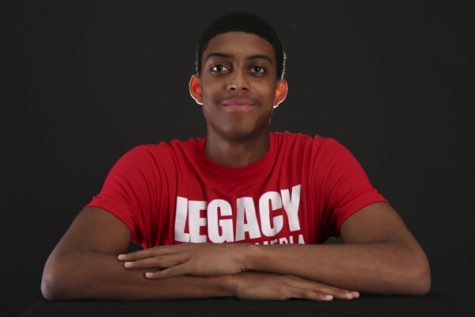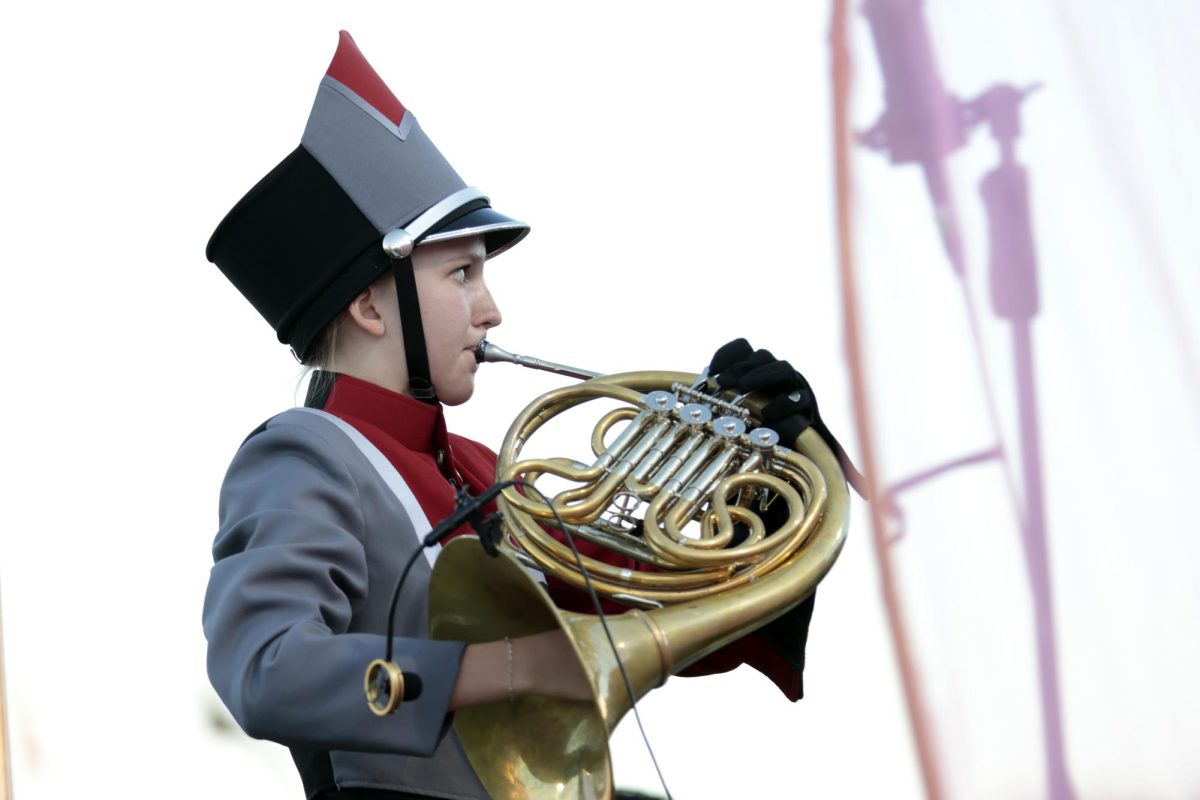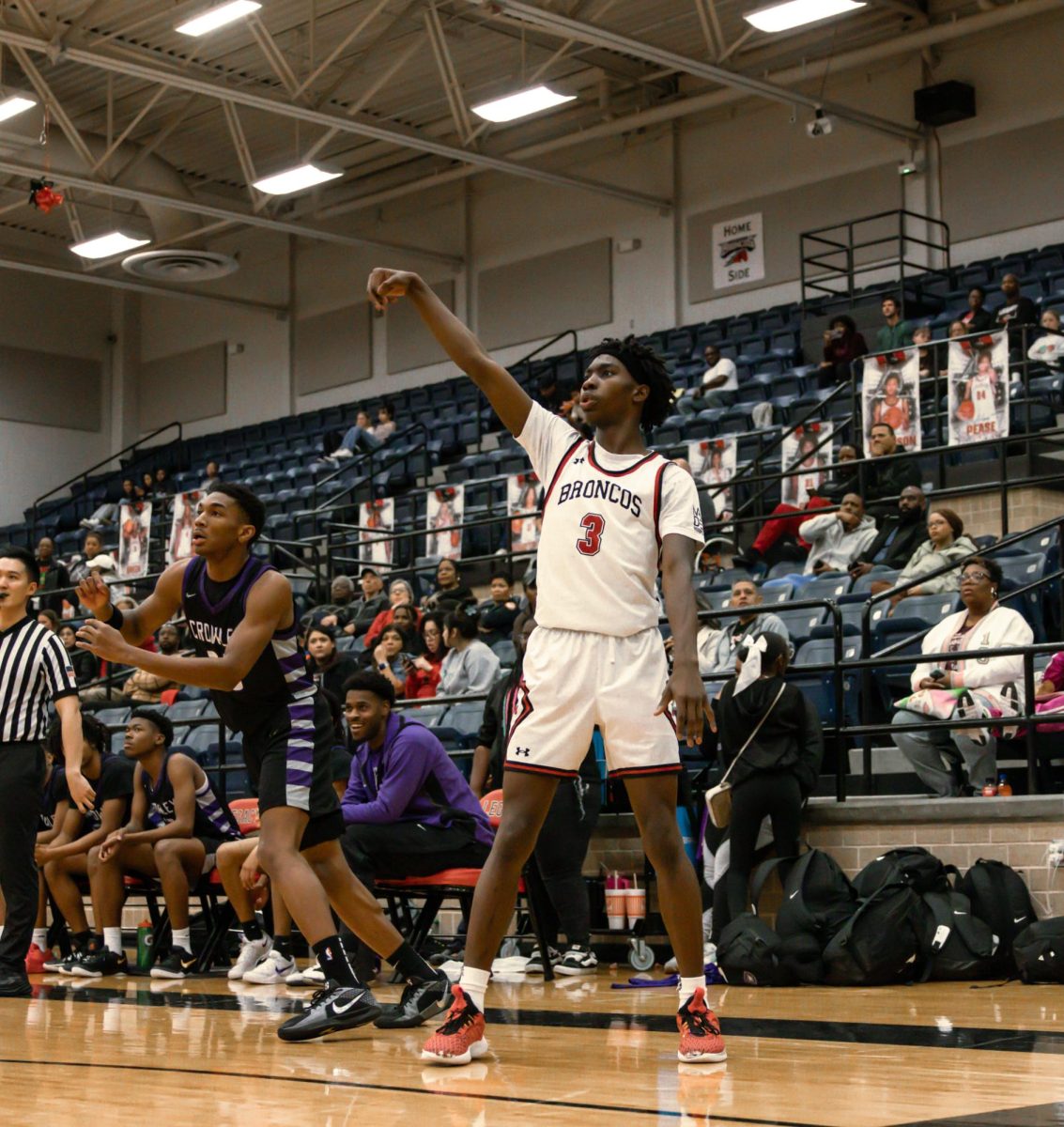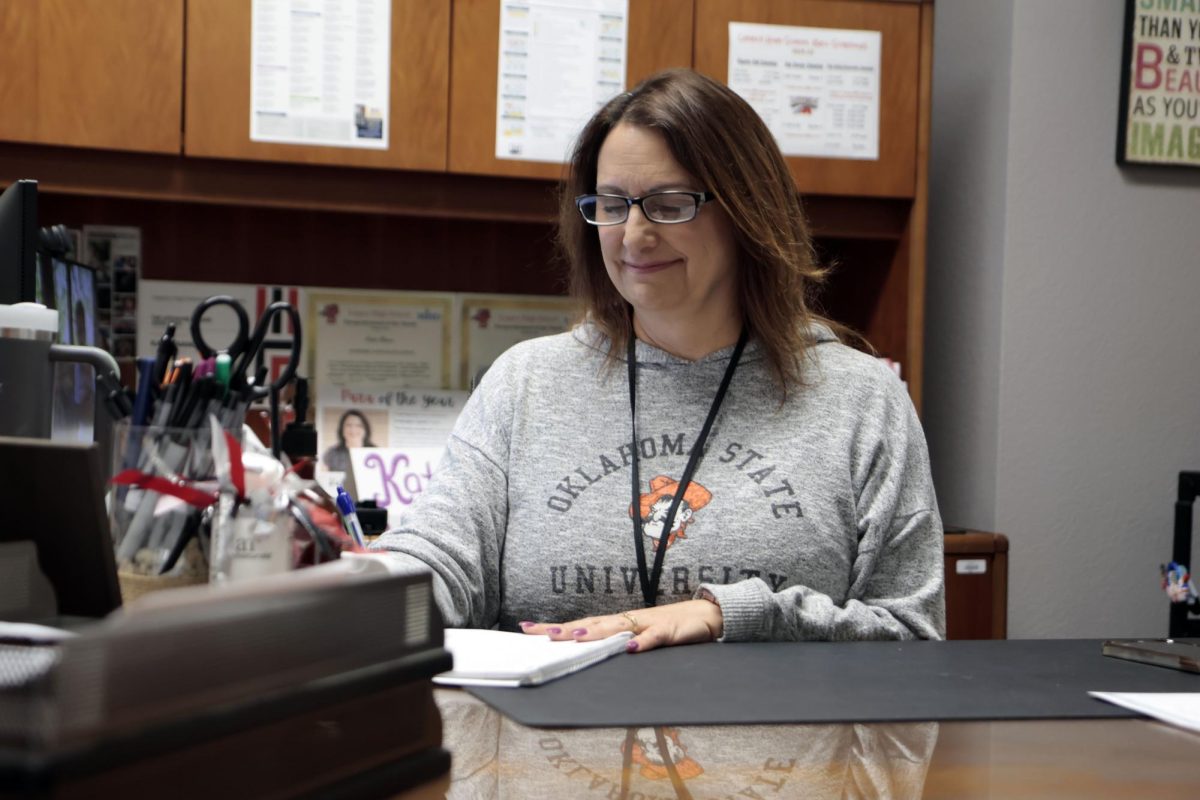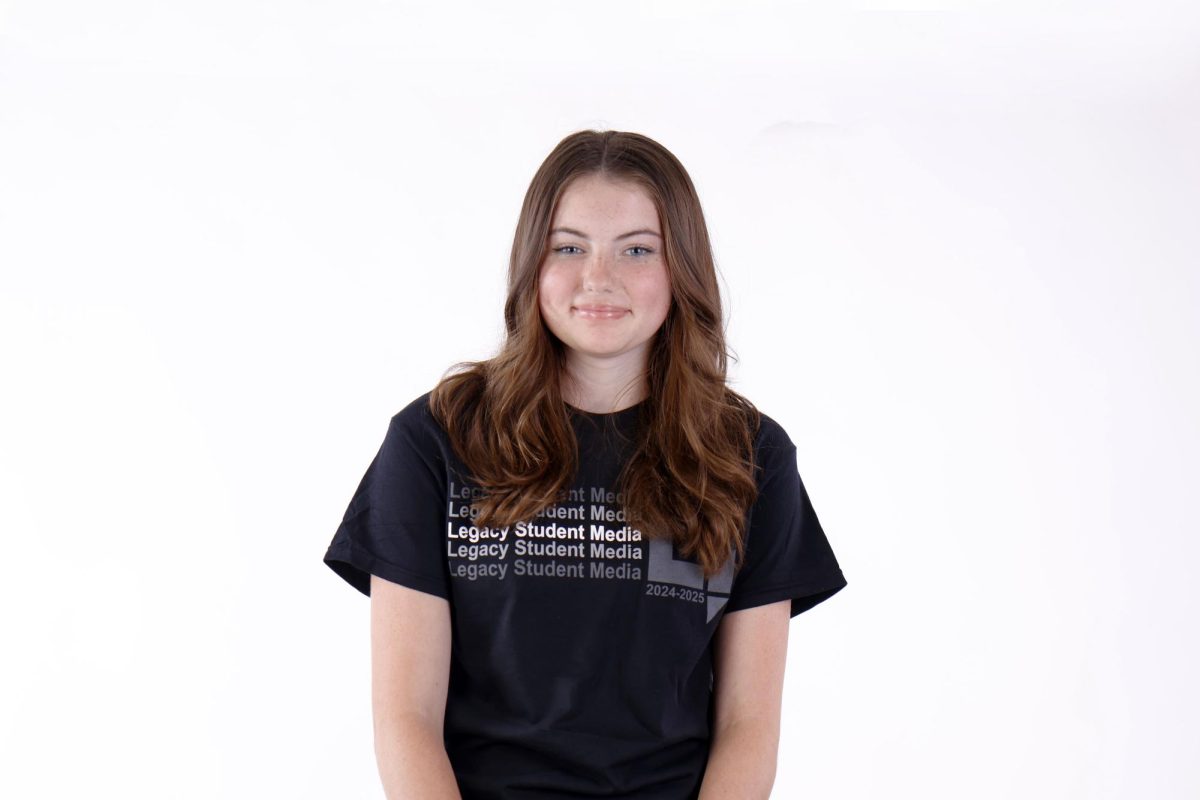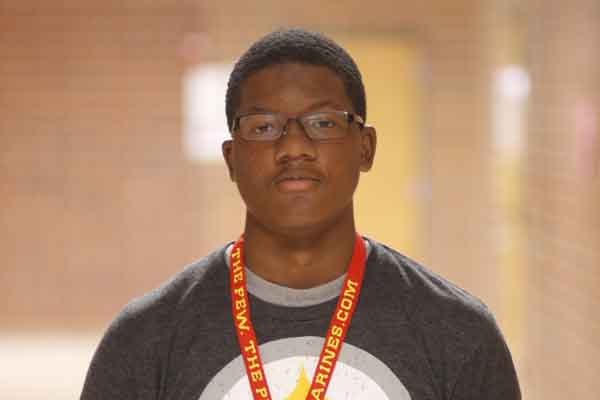
Sophomore Keyantè Gilliam flips his rifle in the air with sore arms as he marches around campus and practices drill meet intros. Every Tuesday and Thursday, he and fellow cadets work multiple hours after school preparing for drill meets, while some JROTC members, see this as the beginning of a journey to joining the military.
“I had to work hard with rifles, sacrifice lunch time, study, and pay attention to marching, using the knowledge I needed to succeed”, Gilliam said.
While not all JROTC members plan to join the military, Gilliam plans to. Gillam’s mother, a chief in the US Navy and supply officer, inspired him to be in the military. His instructor, Sergeant Smith, guides them to making sure they’re on the right track, because some students disrespect their elders. JROTC adjusts that situation.
“The purpose of JROTC is to help with attitude and respecting your elders, not necessarily preparing you for joining the military,” Sergeant Smith said
A commissioned officer apprentices under the sergeant major who must teach the officer his job and transform them into an outstanding citizen. Before a cadet can become a commissioned officer, reaching the job takes steps. First, you have to pass a group of tests, then succeed while performing on a drill team. Next, they show that they want to be in charge, and prove their dedication and display their leadership.
“It takes a great attitude, motivation, and a drive to want to be a better citizen, which makes you a better leader.” Sergeant Smith said.
While beginning his freshman year, he plans to accomplish his goal of being a fighter pilot, but first he must establish the role of becoming a commissioned officer.
“You have to keep striving through ranks, because it gets more challenging as you move up,” Gilliam said. ”If you want to be a fighter pilot, you have to be a military rank. And I know I can because you have to keep on having faith and earn promotions.”
After applying to a military college, collegiate administrators come to scout the JROTC cadets at drill meets, extracurricular activities and check their grades. Not only they evaluate their skills, but seek that they have a positive attitude at all times.
”Your attitude will certainly be improved, no matter what you’re doing”, Gilliam said.
Gilliam wants to join the US Navy after high school. This includes the learning of affective communication, knowing multiple languages, swimming, practicing radar, interacting with technology, and excelling in the classroom. In response to this, Gilliam received the “LET Service Ribbon”, “Most Improved Cadet” and the “Best Marching Platoon” awards at the 2014 JROTC Ceremony. For the next two years, Gilliam will be marching and working with rifles with his eyes on his goal.
“I can become a fighter pilot, because my mom told me, ‘you can do whatever you want, if you put your mind to it,’” Gilliam said.



